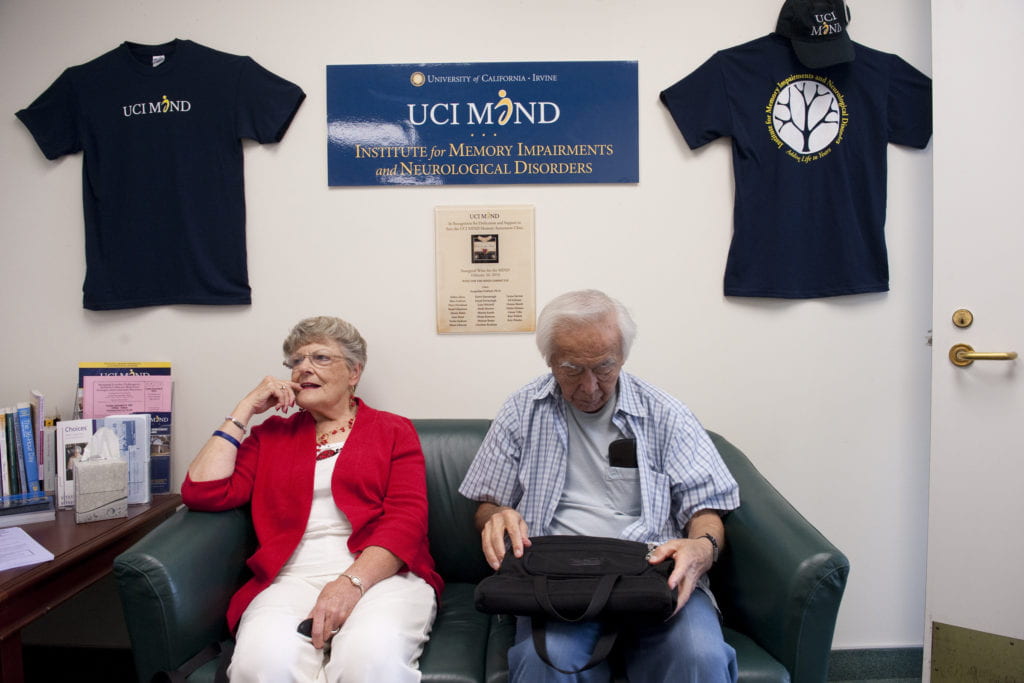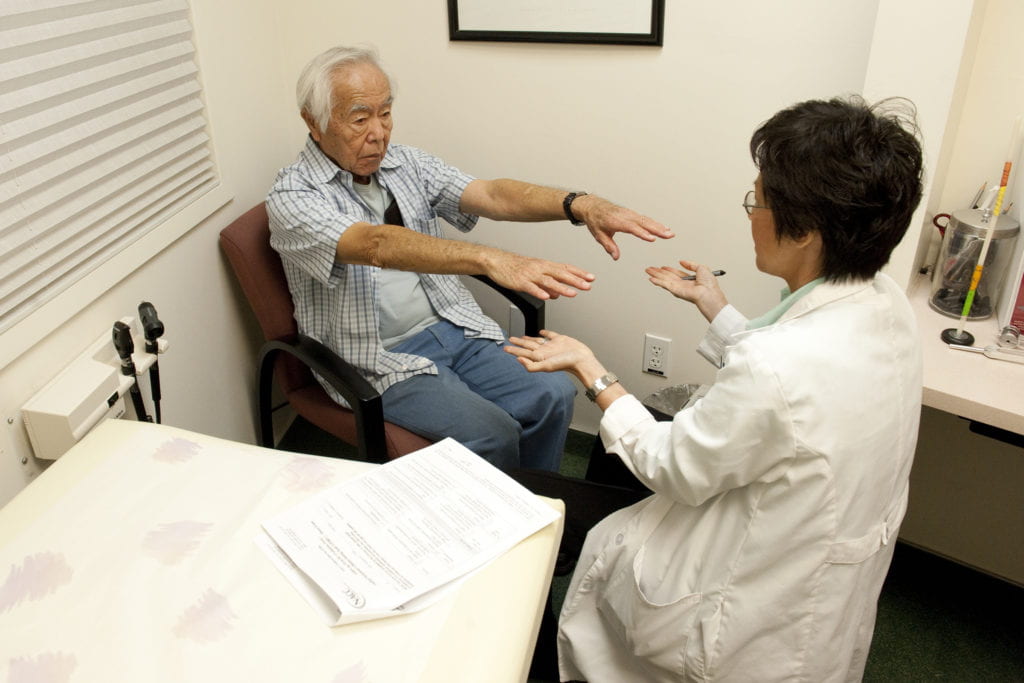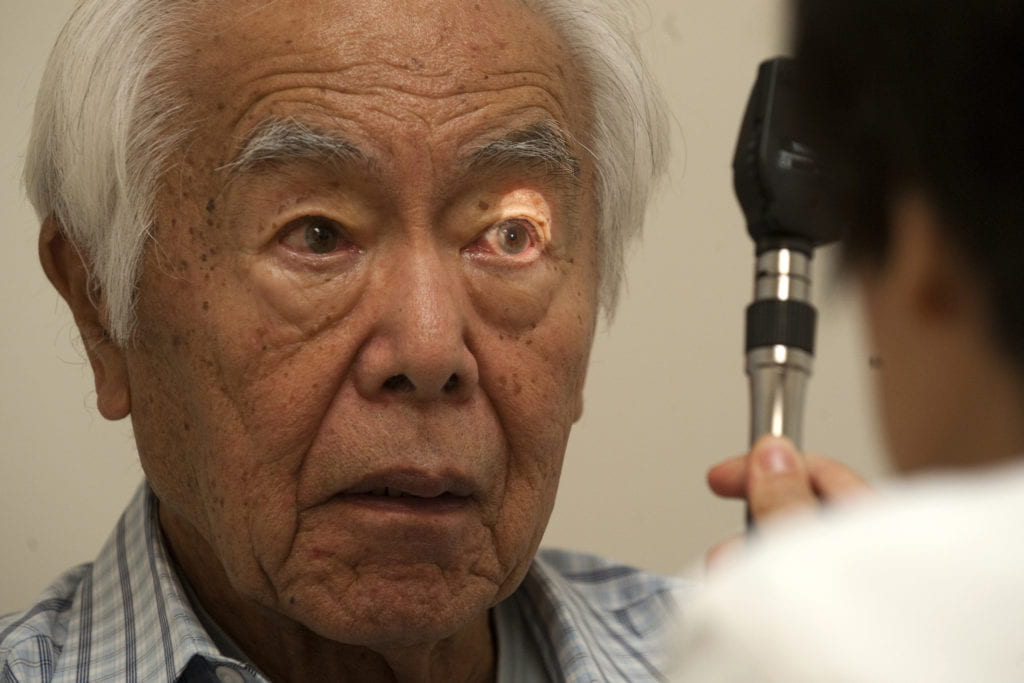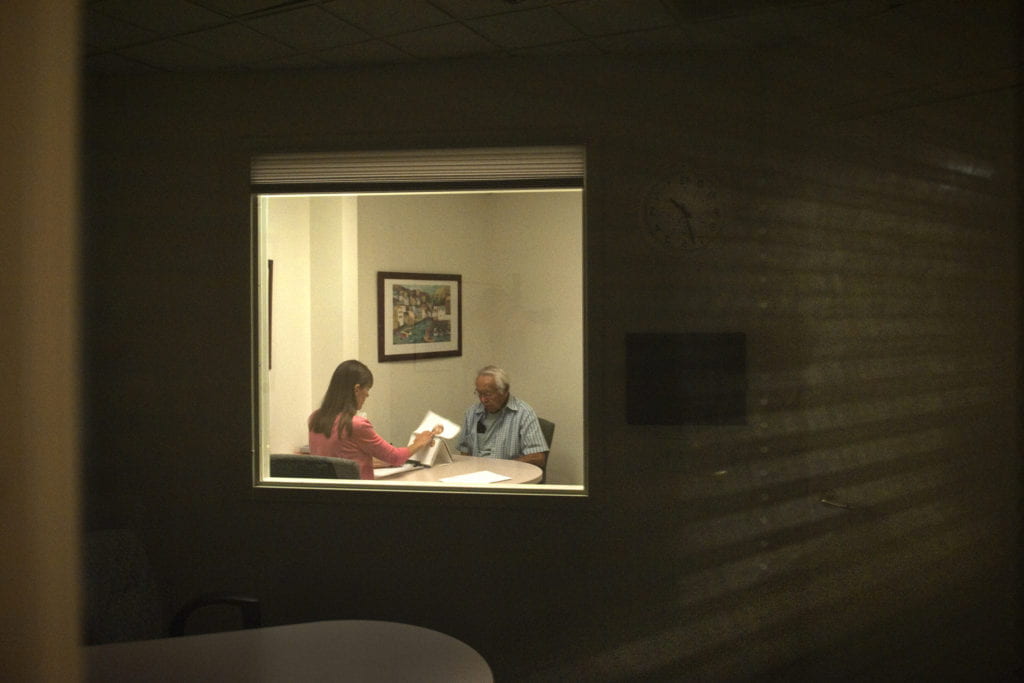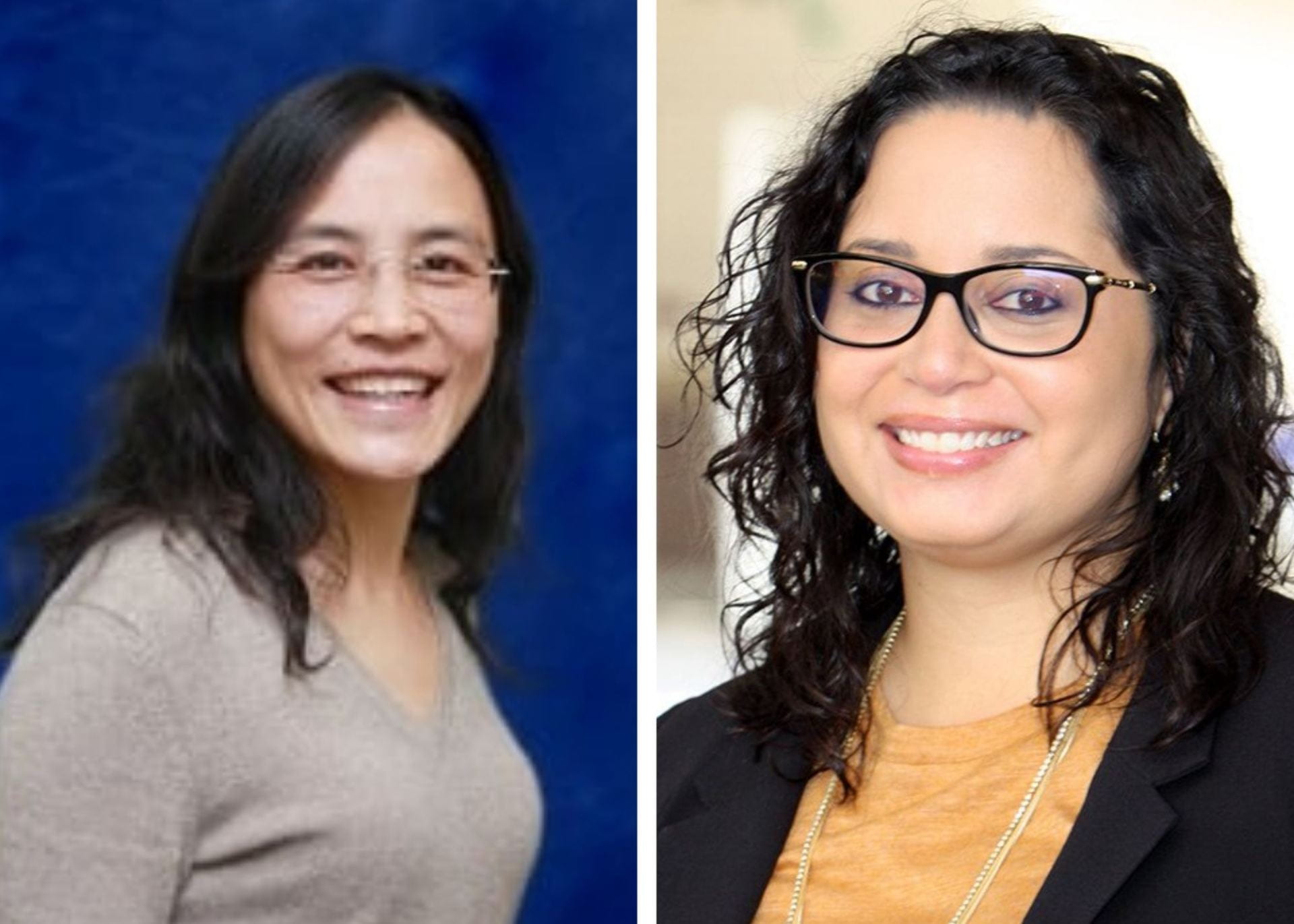Evaluating forgetfulness
UCI’s Memory Assessment Clinic is the only outpatient facility in Orange County providing comprehensive services focused solely on the early identification of Alzheimer’s disease and related dementias.
Forgetting where you parked your car, the name of someone you
just met or a new phone number is a sign of the normal changes to short-term
memory that most healthy adults experience as they age.
Becoming lost on the way to the grocery store, not recognizing someone
familiar or forgetting what a phone does, however, could signal dementia, most
commonly in the form of Alzheimer’s disease. The difference in symptoms can be subtle
and easily misunderstood.
One in 10 people over 65 and nearly half of those over 85 have Alzheimer’s.
But despite greater awareness of this neurological disease, few clinics offer
the thorough examinations necessary for accurate diagnosis, says
neuropsychologist Malcolm Dick of UC Irvine’s Institute for Memory Impairments and Neurological Disorders.
He is on staff at UCI MIND’s Memory Assessment Clinic, the only outpatient facility in
Orange County providing comprehensive services focused solely on the early
identification of Alzheimer’s disease and related dementias.
“We’re able to do everything here needed to make the best diagnosis
possible,” Dick says. “The causes of cognitive impairment in older adults are
complex and varied, ranging from easily reversible adverse effects of medication
to irreversible degenerative conditions like Alzheimer’s.”
The clinic sees about 400 people per year. Roughly half receive annual
evaluations, and many participate in federal and state clinical trials that
collect important data enhancing understanding of the causes, course and
treatment of Alzheimer’s.
Based on exam results, clinic specialists offer recommendations to improve
patients’ cognitive and everyday functioning while enhancing quality of life for
both the impaired individual and his or her family.
“We know the earlier dementia is caught, the better the treatment and quality
of life,” says Jim McAleer, president and CEO of the Alzheimer’s
Association of Orange County. “UCI’s comprehensive approach is particularly
effective in diagnosing the specific form of dementia. There’s nothing else like
it in Orange County.”
That’s why Tom Hayashi recently returned for his fifth annual evaluation. The
83-year-old Santa Ana resident saw Alzheimer’s take the life of his best friend,
John Woelke, in 2002. Four years later, with Hayashi increasingly forgetful of
names, numbers and recent events, Peggy Woelke urged him to visit UCI’s Memory
Assessment Clinic, as her husband had when he first showed signs of dementia.
The evaluation, she said, led to a spectrum of care she believes added quality
years to his life.
Hayashi was found to have mild cognitive impairment, a disorder seen in as
many as 17 percent of adults over 71, in which problems with recent memory,
language or other mental abilities are more pronounced than in normal aging. “The clinic program has been helpful,” he says. “It gives me an idea of where I
stand.”
This summer, like all patients, Hayashi took paper-and-pencil tests designed
to measure his memory, language, reasoning and spatial skills. He also got a
thorough neurological and physical exam, underwent an MRI and had blood work
done. The complete evaluation, usually spread over two half-days, ends with a
family conference to discuss the diagnosis and treatment recommendations.
Hayashi will receive his results this fall.
New techniques such as biomarker analysis of cerebrospinal fluid are showing
promise as effective ways to identify Alzheimer’s, says Dick, who joined the
clinic when it opened in 1989, but they only go so far.
“The diagnostic process is like figuring out a jigsaw puzzle,” he says. “We
need the cognitive, neurological, brain imaging and blood tests, and when we
fill in all these pieces of the puzzle, we can make an Alzheimer’s diagnosis
with 90 to 95 percent accuracy.”
Esther Goff, 72, had her second evaluation at UCI’s Memory Assessment Clinic
in August. Diagnosed in 2009 with mild cognitive impairment, the Lake Forest
resident takes medication that may delay its progression to dementia.
Goff has trouble remembering recent events. She and her husband, Joe, went on
an 11-day tour of Germany this summer, and only by looking at photos can she
recall any of it.
“I want to be involved with research that helps others,” says Goff, who
participates in a federal study run through the clinic. “The U.S. population is
aging, and more people are living into their 90s and experiencing memory-related
disorders. I hope to aid future treatments.”
During her most recent family conference, she says, Dick spent two hours
reviewing test results in detail, answering all their questions in his calm,
soothing voice. The meeting brought good news: Goff’s previous diagnosis had not
changed, and her memory hadn’t appreciably worsened over the intervening year.
“Most people who come to the clinic know there’s a problem,” Dick says. “They
want to know what the likely cause is and what can be done to slow down the loss
of cognitive function to improve their quality of life. And we can tell them
that.”
To schedule an appointment at UCI’s Memory Assessment Clinic, call
949-824-2382. Medi-Cal, Medicare, supplemental insurance and private payment are
accepted. Individuals enrolled in the federal Alzheimer’s disease research
program are not charged for evaluations.
